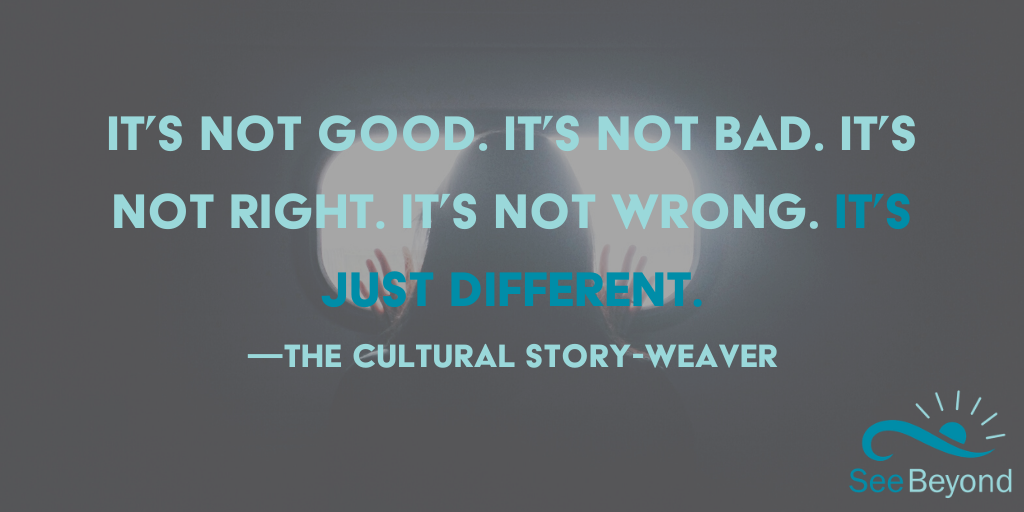Culture Shock—What is Really Going On?
My husband and I had been anxiously preparing for our big family move to Morocco for months . . . even years. We had been packing, learning Arabic with Rosetta Stone, studying the customs and culture of our “new land.” I even remember discovering and devouring a book called “Culture Shock—Morocco.”
We were prepared and ready to go, and so were our kids. We couldn’t wait to hit the ground.
Upon arrival, we all loved everything about our new home. The country was absolutely beautiful, with breathtaking views of the ocean not far from our rental house. I can remember the waves at night that would rock us to sleep.
Our landlord and neighbors were friendly and welcoming and would regularly invite us over for sweet mint etay. The food was to die for—couscous, tagine with lamb and prunes, s’fa with cinnamon and powdered sugar, m’simmons smothered in melted butter and honey. My mouth is still watering!
We enjoyed strolling through the local souks looking for bargains. It was exciting and interesting to watch the people, try to speak to them in Arabic, and learn new facts about this fascinating culture.
We also had a wonderful lady who would help us at the house and take care of the kids while we were at language school or running errands. It was wonderful to have someone who could help us navigate this new language and culture.
Our boys also enjoyed their new life in Morocco. They had adjusted well to their new school, made some good friends, and enjoyed surfing on the weekends.
It seemed like a dream come true.
We Hit a Wall!
Until a few months later, something shifted. We felt like we hit a wall.
Everything suddenly became frustrating. We had been studying the language—making good progress—but now, everything seemed to plateau. We wondered if we would ever learn Arabic enough to get past basic greetings and buying oranges at the market.
Visits to the souks were now annoying, as we seemed to always pay higher prices than the locals—never fully mastering the art of negotiation.
Having someone to help me around the house also turned sour as I preferred to have things done my way—my American way—and not the Moroccan way. Sometimes I just wanted to be alone in my house and hang my own laundry!
The waves that used to rock me to sleep now kept me up at night.
I was also not comfortable driving in the city traffic, so I felt completely dependent on my husband to take me anywhere.
My kids were learning classical Arabic at school, and we couldn’t help them with their homework. They became frustrated too.
Christmas was coming, and I was really starting to miss snow, decorations, and my family.
What was happening?
The Honeymoon is Over!
Over coffee one day, I shared my feelings with another expat who had been on the ground in Morocco for many years.
“The honeymoon is over,” she said.
“The honeymoon? My husband and I have been married for 7 years.” I replied.
“The honeymoon period of the ‘Culture Shock Cycle’ is over, and you’re now entering a new stage in the cycle,” my friend explained.
What are the Stages of the ‘Culture Shock Cycle’?
According to Medium’s “Global Perspectives", culture shock typically has four stages: Honeymoon Stage, Frustration Stage, Adjustment Stage, and Acceptance Stage. These stages come and go at various intervals in a person’s cross-cultural journey, and they look different for everyone. However, people usually will pass through all culture shock seasons at one point or another.
Important: The Cultural Shock stages may vary by length, and some people may oscillate in between stages. Sometimes, the cycle can shorten or lengthen, depending on the length of one’s stay in a country or culture.
1. The Honeymoon Stage (0-3 months): Everything is wonderful and positive! People are typically infatuated with the new language, culture, and people—just like newly-married couples. Pure bliss! It seems like you made the best decision ever, and that your dream is finally coming true!
For those who travel for a short period of time (a few weeks or months), their entire trip may remain in the “Honeymoon Stage.” Time doesn’t allow them to hit the other stages.
Some people may experience the entire “Honeymoon Stage” before they hit the ground (pre-departure). In this case, they may move directly into the following stage on day one in their new country and culture.
2. The Frustration Stage (3-9 months): This is typically the most difficult stage of the “Culture Shock Cycle.” Fatigue sets in regarding one’s inability to communicate in the new language and adjust to the new culture. The things one first loved about their new home now seem to drive them crazy. Homesickness and depression are quite common during this stage, as foreigners begin longing to “go back home” where everything is familiar and comfortable.
3. The Adjustment Stage (9-12 months): In this phase, foreigners begin to adjust to their new environment. Language becomes more comprehensible, as if the dots start connecting in the language part of their brain. They begin to feel more comfortable and familiar with the culture, the food, the people. Friends and support networks are more established, providing community and a sort of family away from home.
4. The Acceptance Stage (12 months+): This final stage of the “Culture Shock Cycle” takes place weeks, months, even years after a person has wrestled with their new life and foreign environment.
“Acceptance doesn’t mean that new cultures or environments are completely understood, rather it signifies realization that complete understanding isn’t necessary to function and thrive in the new surroundings.” (Medium—”Global Perspectives”)
People typically begin to accept the people, the food, the culture, and the language—even if they don’t fully understand it. They stop judging and comparing. Rather, they accept that “this is just how they do it here.”
Everything starts to feel like “home.” People even start referring to this foreign country as “their land and their people.”
Feeling Normal
Knowing about the different stages of the “Culture Shock Cycle” can certainly help us to absorb the shock of arriving and settling in a new country and culture. It won’t necessarily make the different phases any easier. However, sometimes just knowing, just recognizing that this is “normal,” somehow makes you feel a little bit more “normal” too.
After talking to my friend over coffee that day, I could finally put words and understanding to my confusing and frustrating feelings. It was helpful to know that this “Frustration Stage” wouldn’t last for the rest of my days in Morocco. Adjustment and acceptance were waiting for me around the corner! I just needed to be patient and take it one day at a time.
I was riding the “Culture Shock Roller Coaster”!
What About You?
What about you? What stage of the “Culture Shock Cycle” are you in today? Looking back at the cycle, do you recognize the other phases?
What resources do you need to get to the next phase and to eventually arrive at the final “Acceptance Stage”? Do you have friends and community around you to provide the resources you need to be healthy during your transition and adjustment?
Would you like someone to help you navigate the different stages of Culture Shock? If you are new to North Africa or the Middle East, we would suggest our “Refresh” package.
Works Cited:
https://culturalstoryweaver.com/
https://medium.com/global-perspectives/the-4-stages-of-culture-shock-a79957726164
Guest author, Marci Renée, along with her French husband and four boys, is a global nomad who has traveled to more than 30 countries and has lived in the United States, France, Morocco, and Spain. She loves to travel, speak foreign languages, experience different cultures, eat ethnic foods, meet people from faraway lands, and of course, write and tell stories. She is a published author of children's picture books, memoirs, short stories, and poetry.
You can find Marci and her books on her website.
"The Cultural Story-Weaver," at www.culturalstoryweaver.com





